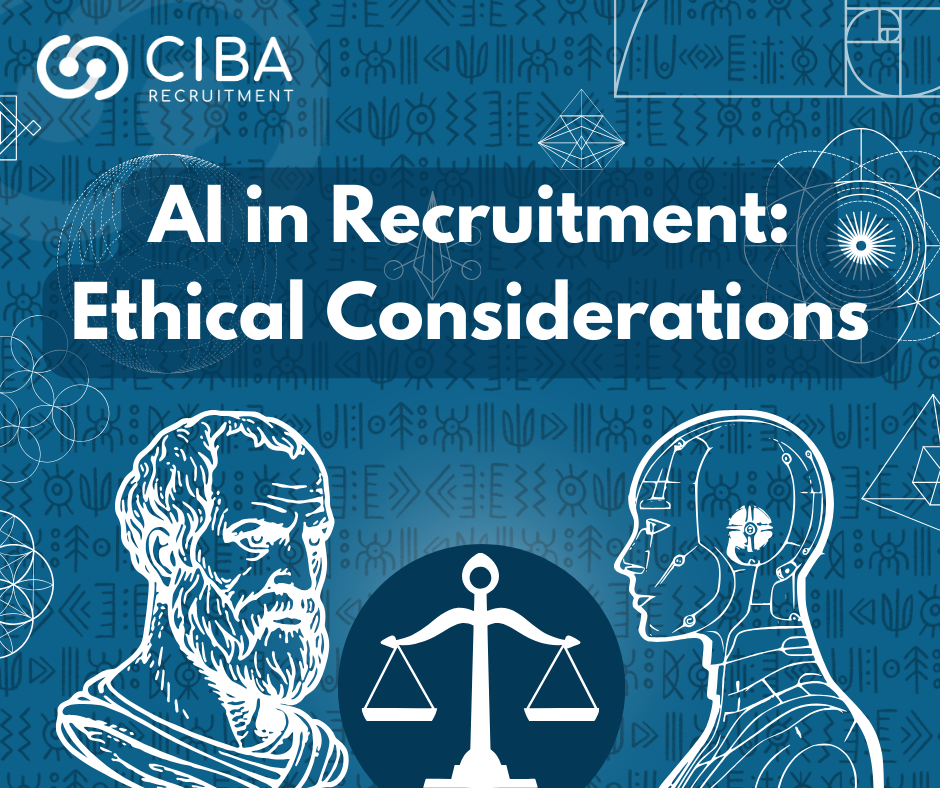
Ethical AI Use and Corporate Responsibility in Recruitment
The integration of Artificial Intelligence (AI) in recruitment has become both a necessity and a responsibility for organisations to keep pace with the dynamic nature of the world of recruitment. As we embark on this journey, it is crucial to explore the ethical dimensions surrounding AI implementation in the recruitment process.
1. Corporate Responsibility for Ethical AI Implementation:
Implementing AI in recruitment is not just a technological leap; it’s a commitment to corporate responsibility. According to a study by Deloitte, 90% of business leaders lacked a framework to support the implementation of ethical principles to guide development and use of AI and cognitive technologies. Organisations must meticulously consider the ethical implications of AI systems, ensuring transparency, fairness, and accountability.
2. Corporate Responsibility to Upskill Employees:
As AI and automation become integral to the recruitment landscape, corporations bear the responsibility of upskilling their employees. According to a report by the World Economic Forum, by 2025, over 50% of all employees will require significant reskilling. This proactive approach ensures that the workforce remains relevant and equipped to collaborate effectively with AI systems.
3. Challenges of AI Processing in Recruitment:
While the benefits of AI in recruitment are substantial, challenges (such as bias) pose ethical concerns. According to a study by MIT, algorithms used in hiring processes can inherit biases present in historical data. Corporations must actively address and mitigate biases to ensure a fair and unbiased recruitment process. This involves constant monitoring, refining algorithms, and incorporating diverse perspectives in the development and oversight of AI systems.
4. Advantages of AI as a Partnering Tool in Recruitment:
AI serves as a powerful ally in recruitment, supporting operational processes and administrative tasks. Hilton uses AI to evaluate candidate interviews, leading to a 40% improvement in hire rates while decreasing time to fill by 90%. Leveraging AI in mundane tasks allows recruiters to focus on strategic and human-centric aspects of the hiring process.
As a responsible corporate citizen, it is imperative to view AI not as a replacement but as a partner in recruitment. The advantages of AI, when wielded ethically, extend beyond efficiency gains to contribute to a fair, diverse, and forward-thinking hiring environment.
In Conclusion:
Ethical AI use in recruitment is not a luxury but a necessity for responsible corporate practices. Balancing the advantages of AI with a commitment to fairness, transparency, and continuous upskilling ensures that organisations navigate the future of recruitment responsibly. By embracing ethical AI practices, corporations can build a recruitment ecosystem that not only meets operational needs, but also fosters a culture of inclusivity and innovation.

